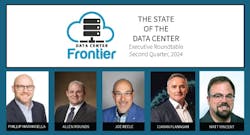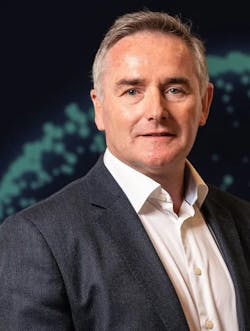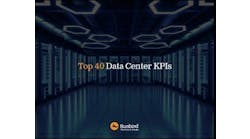In the final installment of our Q2 Executive Roundtable, four industry leaders tackle the ironically evergreen topic of misconceptions and misperceptions surrounding the data center industry in the age of AI.
The real and actual demands on data centers entering the AI era and related, sobering challenges related to power availability are daunting enough. But questionable ideas about the data center industry often abound.
The high profiles of the cloud giants and colocation operators from hyperscale, retail, edge and wholesale data center constituencies transitioning to GenAI training and inference workloads for diverse stakeholder requirements, amid very serious questions about power availability for all industries and a worsening climate crisis, has understandably raised the dander of many commentators, conscientioius and othersise.
This is reflected by the regular appearance of occasionally biased and maybe too-credulous mass media stories, even from reputable outlets, ranging from low-key to assertive quasi-fearmongering about perceived risks and threats attendant to the "unprecedented" AI/ML/GPU "evolution and revolution" now well underway in data centers (to bandy some pervasive terms heard and used widely in today's industry - because they are true descriptors, from the perspective of technology uptake.)
Our Executive Roundtable for the Second Quarter of 2024 is comprised of:
Phillip Marangella, Chief Marketing and Product Officer, EdgeConneX
Ciaran Flanagan, Global Head of Data Center Solutions, Siemens
Joe Reele, VP Solutions Architects, Schneider Electric
Allen Rounds, Sales Executive, Kohler
Now onto the final question of the week for our Executive Roundtable for the Second Quarter of 2024.
Data Center Frontier: What are some data points or anecdotes people persistently seem to get wrong or misbelieve about your area of the data center sector?
Phillip Marangella, EdgeConneX: As we enter the AI era, data center operators must better explain the industry's role in supporting global infrastructure and technological advancement.
In reality, hardly any person or business is unaffected by the advantages of cloud computing and AI.
A common misconception is that data center energy usage has significantly increased. Despite a dramatic 500% rise in computing power, storage, and network traffic, the percentage of electricity used by data centers has remained relatively stable over the past decade.
This stability is a testament to the industry's phenomenal innovation in efficiency, where new deployments operate using less electricity while generating lower carbon emissions. Scientists have documented significant improvements in cooling and power provisioning that counterbalance the growing number of servers.
But rather than talking about the gains in efficiencies that data centers have made, we need to tell more relatable stories about the impacts that data centers have on every industry and every person in the world. Doing so will help regulators and communities better understand how all the technologies enabled by data centers positively impact their companies or lives.
From farmers to hospitals, airlines to manufacturers, governments to utilities, and in our daily lives, everyone benefits from the data center infrastructure powering the world's digital economies. Because of AI and the cloud, many people and industries are becoming far more efficient and sustainable in their lives or businesses.
Ciaran Flanagan, Siemens: The biggest misconception I see is the idea that data centers will use all the world’s available power.
And for sure, data centers use a lot of power. But the other side of the story is poorly understood.
First, the data center industry is the beating heart of economic growth, making society more efficient and solving complex problems we couldn’t address in the past.
The second part of the puzzle relates to climate change – this industry has underwritten more renewable investment than any other and is the driving force behind decarbonization of the electricity grid, which is a massive benefit for us all.
Today the promise of AI is replete with misconceptions … employability, ethics, sustainability all play into a narrative where the public at large are concerned.
These are misconceptions today because we don’t fully know where this leads us.
However, I would contend that, in practice, AI applications will need to find a commercial benefit and when these applications emerge more widely, we will learn if any of the current misconceptions hold true.
Joe Reele, Schneider Electric: The main misconception is that the data center is the enemy.
Truthfully, data centers support our digital economy. They enable us to function in our everyday tasks and are crucial when it comes to solving some of the world’s most profound challenges such as in medicine, security, and transportation.
The reason more data centers are coming online is because they are needed to support our new way of living in this digital age. Without them, it simply wouldn’t be possible.
Advances in medicine, technology, science that have transpired and continue to push us forward are all driven by data centers and digital infrastructure.
Allen Rounds, Kohler: I think it’s important to understand that public opinion is not an obstacle to overcome or an opponent to defeat.
These are the people we serve with our networks and connectivity services, and their ongoing ability to ask questions and express worries is an important part of these business and operational relationships.
For us, it’s important to maintain congenial relationships with the media or public, because this is our space to engage in open, productive, necessary dialogue—and for readers and communities to participate in that dialogue.
There are some misconceptions, sure, but concerns about risks and threats come from a healthy place. After all, we all want to live in a safe community. If there are negative sentiments then it's our job as an industry job to engage in a collaborative way to calm concerns, not fight back with claims of ignorance or ill-will.
We're all in this together, so we need to work together with various stakeholders to listen, gain trust, and create a better situation in an open and honest way—something that won’t be helped by hammering on data points or anecdotes.
Data centers, AI, and the like have a major role to play in shaping our collective future, so it's our task to shape it in a positive way.
This certainly is not a perfect industry with everything figured out, but open discussion and innovation is the way forward, not an impingement for those that truly have the global community's best interests at heart.

Matt Vincent
A B2B technology journalist and editor with more than two decades of experience, Matt Vincent is Editor in Chief of Data Center Frontier.










